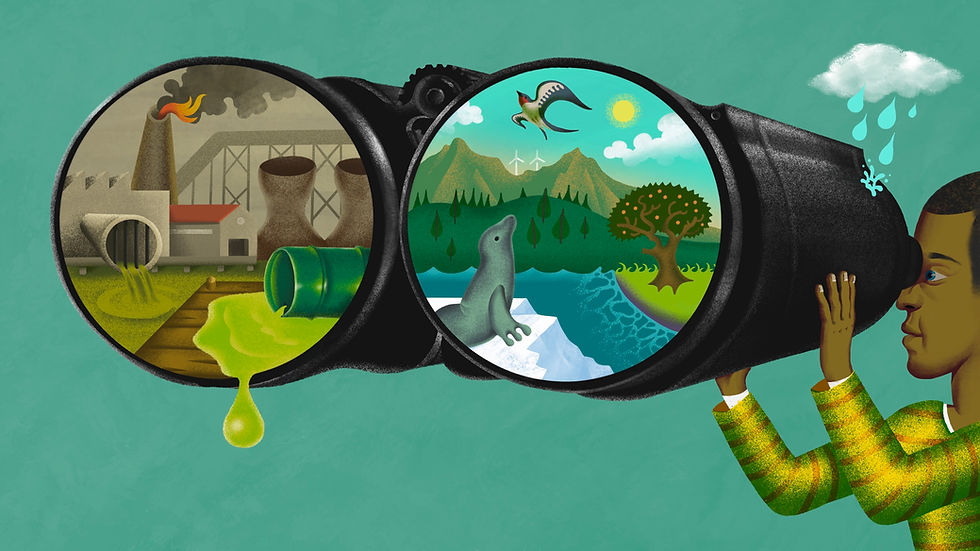Why Your Siblings (and Half the Country) See Life So Differently
- outofsmallthingsli
- Oct 22, 2025
- 3 min read

In my Human Development Through the Lifespan class, we talked about Nature vs. Nurture. Although we didn’t go deep, it’s one of the most fascinating topics for me.
Quick refresher: Nature is what we’re born with — our genetics and anything passed down through biology. Nurture is what we pick up along the way — the environment, caretakers, and life experiences that shape us.
I used to wonder why some of my siblings saw things so differently from me. I mean, we had the same parents and were raised in the same house! Shouldn’t that mean we came out thinking alike?
Yet somehow, we ended up remembering the same childhood events in completely different ways.
(I thought my teasing kept things playful. My siblings didn’t always agree.)
It baffled me — until I realized how many invisible factors shape our perspective.
Here are a few to keep in mind next time you’re tempted to think, "what planet is this person from?"
1. We come preloaded with unique wiring.
Even siblings share only about half their DNA. That means personality, sensitivity, energy level, sense of humor — all of it gets mixed in new ways each time. Even identical twins don’t process the world exactly the same.
2. Birth order plays its part.
A firstborn experiences a level of parental focus that none of the subsequent siblings ever will. Middle kids — bless them — get to practice flexibility and diplomacy (hey, you didn't get ignored in this post 😂). And the baby? They get to wear that title longer than they'd like.
3. Parents evolve.
Each child is raised by a slightly different version of the same parents. The firstborn gets the “new model” parents — cautious, rule-following, maybe a little uptight. By the time the youngest comes along, those parents have often mellowed out or surrendered entirely.
4. Life experience edits our lens.
School environments, friendships, successes, and failures all shape how we interpret the world. Even within one family, we can live wildly different stories.
5. Our brains don’t just store memories — they interpret them.
We remember feelings, not just facts. The same family event can feel joyful to one person and painful to another because their internal narrative differs. It’s not lying; it’s living through a different lens.
When I look back, I can see how quick I was to judge a sibling’s choices or opinions — convinced mine were the “right” ones. If I could do it over, I’d spend less time defending my view and more time getting curious about theirs.
So, the next time you’re baffled (or irritated) by a family member, friend, or anyone with a wildly different perspective, try remembering how many layers go into the way they see the world.
Stephen Covey put it best: “Seek first to understand, then to be understood.”
You don’t have to agree. But you can be curious.
Here’s a challenge (and maybe a dare):
Find someone who sees things differently — politically, religiously, socially, or even just their taste in pizza — and have a real conversation. Not to change their mind, but to expand yours.
Here are some questions that can make it easier:
“I’ve honestly never thought about it that way — can you tell me more?”
“What life experience shaped how you see this?”
“How does that view make life easier or harder for you?”
“If you could help others understand your perspective better, what would you want them to know?”
“What’s something you appreciate about people who disagree with you?”
We talk a lot about loving our neighbors — but sometimes the real test is loving the ones who share our last name.
High five! ✋
Want more than a blog pep talk? Go from reading to doing 👉 https://www.outofsmallthings.com/workwithme
Like what you read?
Subscribe below so you don’t miss the next post—and if this helped you, share it with a friend who might need the same boost today.




Comments